For some students, the prospect of a course in the Bahamas clinches the decision to attend Merry Lea’s Master of Arts in Environmental Education program. For Ali Sanders, the course also settled her career direction.
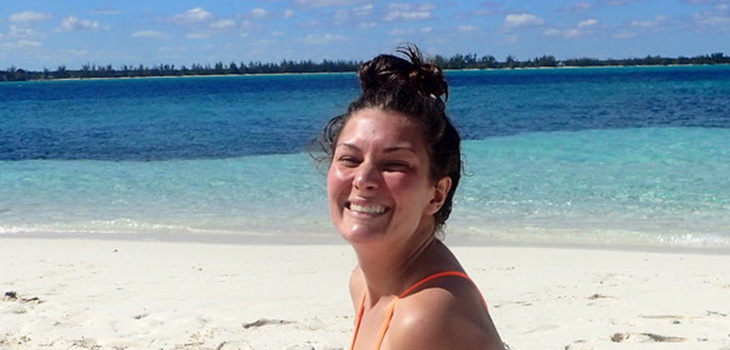

For some students, the prospect of a course in the Bahamas clinches the decision to attend Merry Lea’s Master of Arts in Environmental Education program. For Ali Sanders, the course also settled her career direction.
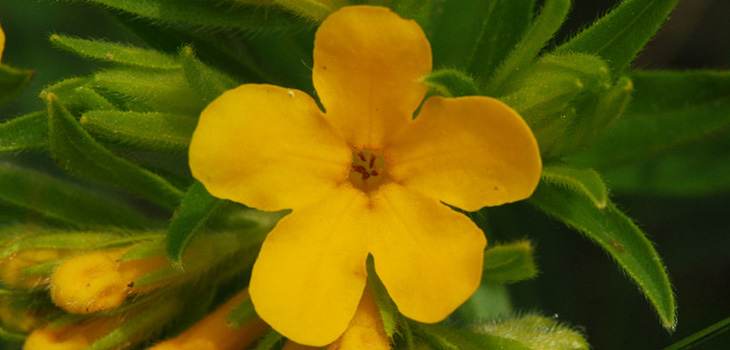
Merry Lea fans may be unaware of the wealth of information available under the land management tab on Merry Lea’s website. These pages describe the ecosystems that make up Merry Lea and the restoration projects underway or completed.
See what keeps Merry Lea's master's students hopeful despite the state of the world, catch a glimpse of the new strategic plan and meet an array of new dialog partners. Page 7 will coach you on how to get the most out of Merry Lea's land management webpages.
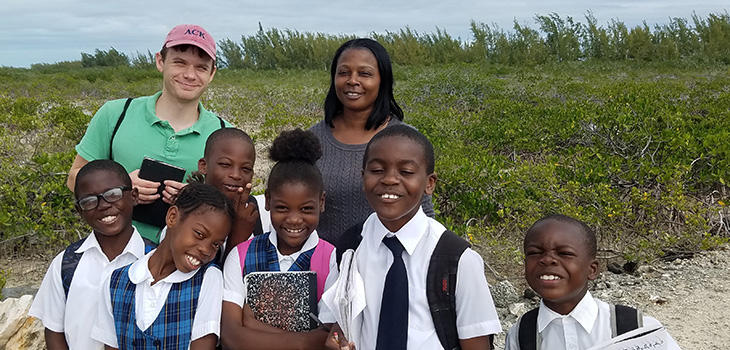
Spirits can sag mid-way through a demanding graduate program—especially in the winter. It doesn’t help when your field of study requires you to prepare presentations on topics like microplastics and nuclear disasters. Between the workload, the weather and the state of the world, life can seem pretty grim.
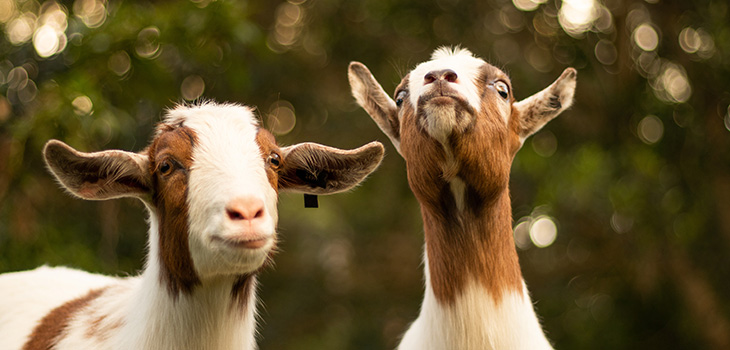
On February 2, I attended the Northern Indiana Grazing Conference in Shipshewana, Ind. I went because Sarah Fleck was giving a workshop called the Art and Science of Grazing. She has a farm in Northern Vermont and is a consultant for grazing farmers. Her particular expertise is working with 100% grass-fed animals.

Every three years, I take a class of Goshen College students to the plains and mountains of northern India to study the ecological foundations of human sustainability and the stress that modernity puts on them. It is a place of unparalleled diversity, density and beauty.
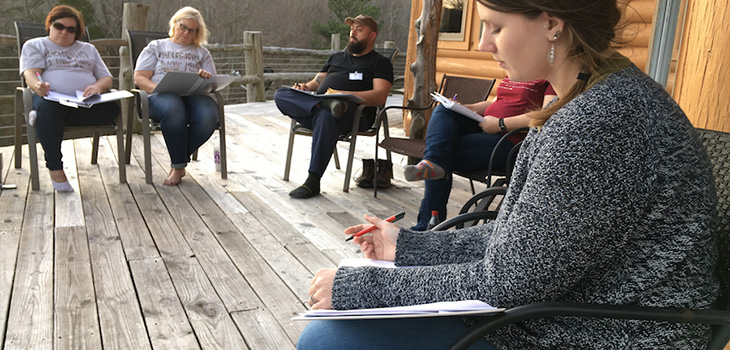
Carol Good-Elliott and Katie Stoltzfus of Merry Lea’s Environmental Education Outreach Team spent February 7 and 8 visiting Kinderforest programs in Tennessee and Georgia.
“Nature journaling is about noticing: colors, where the moon is rising, the contour of a leaf or antler,” Carol Good-Elliott told the dozen people who attended Merry Lea’s nature journaling workshop February 2.

Students in Merry Lea’s Master’s in Environmental Education program discuss vexing social problems in their Environmental Issues and History class. They prepare presentations on topics like micro-plastics and nuclear disasters. All the same, students say they find hope in the course.
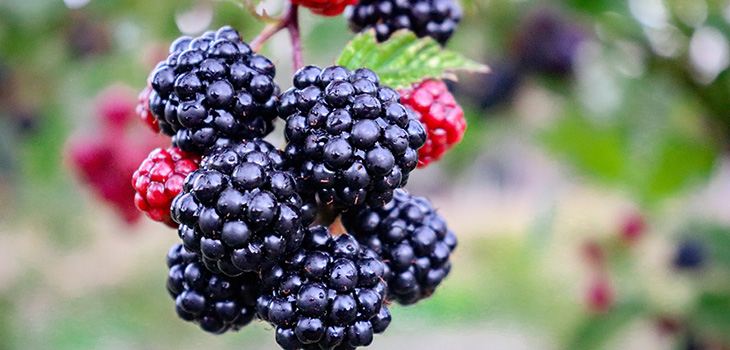
In December 2018, John Mischler and I attended the Perennial Farm Gathering hosted by the Savanna Institute in Madison, Wis. The Savanna Institute is a non-profit organization that supports the development of restorative, savanna-based agricultural systems.